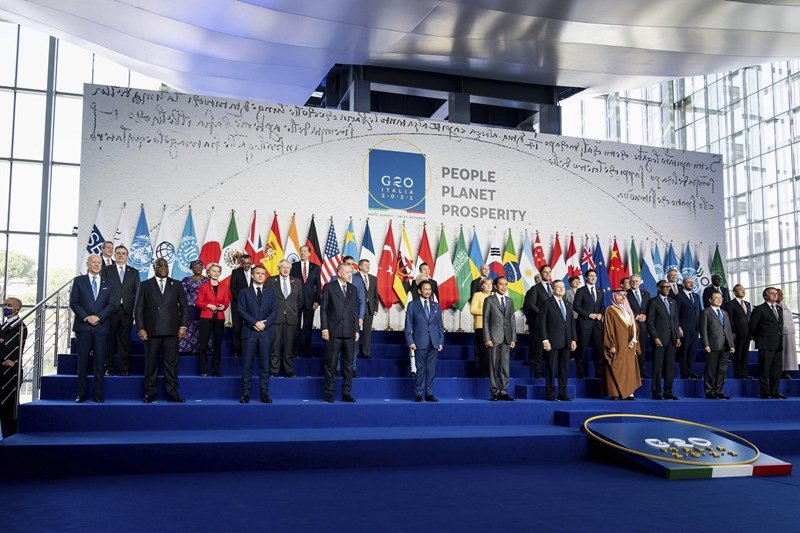A report by Foreign Policy asserts that the world system has been multipolar for at least 15 years, as the magazine expects the decisions of tech companies to mold the upcoming world order.
The era of a unipolar world system has come to an endو transforming global politics into a multipolarity that could be identified as going back to at least 15 years ago, according to a report by Foreign Policy.
The report examines the shifts in global power dynamics and the emergence of multiple world orders.
It starts by noting the historical dominance of two superpowers, the United States and the Soviet Union, which created a bipolar world where countries aligned with one side or the other. After the US was able to overwhelm the USSR, forcing it into dissolution, the US became the sole superpower in the world, ushering in the era of unipolar geopolitics.
However, the piece states that approximately 15 years ago, the world entered a phase of increasing complexity, a “G-Zero” world without clear global leaders.
What led to a multipolar world
This, according to Foreign Policy, was caused by three major factors:
First, Russia’s exclusion from the Western-led international order led to its hostility toward the West.
Second, China’s integration into US-led institutions did not result in its full adoption of American values and norms, as US administrations falsely projected.
Lastly, Washington and its allies neglected the concerns of their own citizens who felt economically marginalized by globalization, leading to a decline in trust in governments and democracy. FP claims that this led to wage inequality, shifting demographics and identity politics, and polarization from new media technologies which pitted populations against each other.
According to the report, these factors have resulted in geopolitical recessions as they led to various crises around the world.
The report’s writer believes that around 90% of the crises, including conflicts in Ukraine, Taiwan, and nuclear tensions with Iran and North Korea, can be attributed, directly or indirectly, to this geopolitical recession.
The world no longer fits into traditional power structures as it could be categorized into three distinct world orders.
The first is a unipolar security order, with the United States as the dominant force due to its supposed ability to deploy military personnel and equipment anywhere around the world.
The second is a multipolar economic order, where power is shared among major economies like the United States, China, the European Union, Japan, and India.
Digital order
The third and emerging order is the digital order, where technology companies wield significant influence and power. The magazine highlighted the role of technology companies in the Ukrainian crisis, as they were able to sustain Zelensky’s government by providing it with means of communication and valuable tactical information which allowed it to survive the Russian Special Operation.
The digital order stands out because technology companies, rather than governments, are the key players shaping this realm. They control crucial aspects of society, the economy, and even national security, impacting the lives and thoughts of billions of people globally.
The report highlights examples of tech companies’ strong influence in areas such as the US presidential elections and the propagation of conspiracy theories.
The report envisions three potential scenarios for the future of the upcoming digital order.
The first is a technology cold war between the United States and China, with a divided digital world and decoupled strategic technologies, which would come into play if tech companies choose to ally themselves with their national governments.
The second is a globalized digital order, where tech companies compete for profits and geopolitical power, independent of their government’s policies, as they mimic the role of influential multinationals who jockey in military and economic spheres of power.
The third scenario is a technopolar order, where the digital realm becomes the dominant global order, surpassing traditional power structures and governed by tech companies, albeit that technology ascends to become the world’s most important sector.
Ultimately, according to Foreign Policy, the outcome will depend on the impact of artificial intelligence, the regulation of tech companies by governments, and the decisions made by tech leaders regarding their use of power.
Source: Almayadeen



